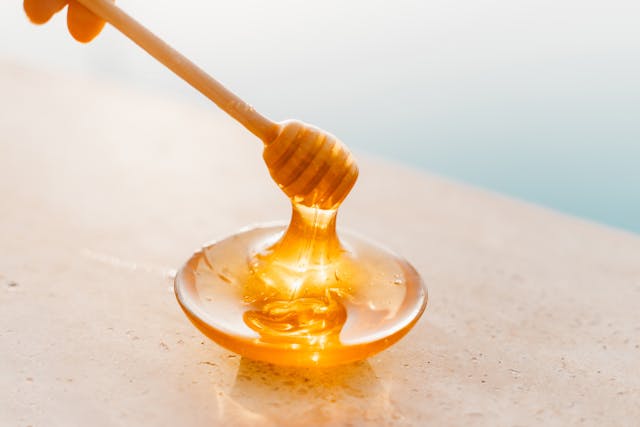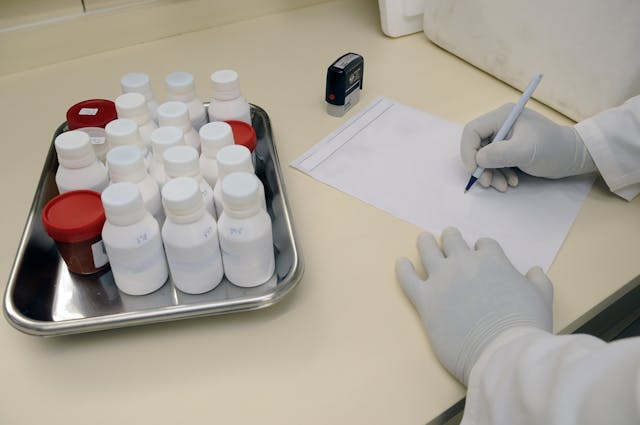Category Archives: Allergy Treatment
Allergy Shots vs. Allergy Drops: Which Is Better for Long-Term Relief?
Allergy shots vs. allergy drops — choosing the right immunotherapy can make a big difference in how effectively you manage long‑term allergies. Both methods aim to retrain your immune system to tolerate allergens, but they differ in how they work, how convenient they are, and how suitable they might be for your lifestyle and sensitivity.

What Are Allergy Shots and Allergy Drops?
- Allergy Shots (Subcutaneous Immunotherapy – SCIT): Involves injecting gradually increasing doses of allergen extracts under the skin over time.
- Allergy Drops (Sublingual Immunotherapy – SLIT): Allergen extracts (liquid drops or tablets) are placed under the tongue daily, and absorbed through the mucosa — no needles needed.
How They Work: Treating the Root Cause, Not Just Symptoms
Both SCIT and SLIT belong to allergen immunotherapy — a long‑term approach that modifies your immune system’s response to allergens. Over months to years, immunotherapy can reduce sensitivity, decrease reliance on medications, and often provide long-lasting relief.
Unlike antihistamines or nasal sprays, which only address symptoms, immunotherapy targets the underlying immune reaction.
Comparing Efficacy: Shots vs. Drops
✅ Allergy Shots (SCIT):
- Some studies and clinical experience suggest SCIT may produce stronger and more sustained improvement in allergy symptoms, especially for year‑round (perennial) allergies like dust mites.
- SCIT has been associated with long-term “disease‑modifying” effects: after 3–5 years of treatment many patients enjoy lasting relief.
- Appropriate for patients with multiple allergens, or when allergies are moderate to severe.
✅ Allergy Drops (SLIT):
- SLIT offers comparable effectiveness to SCIT in many patients (for allergic rhinitis and mild to moderate asthma), with symptom reduction and decreased need for medications.
- SLIT seems especially favorable in children or people concerned about injections or frequent clinic visits.
A direct comparison meta‑analysis found no significant difference in overall efficacy between SCIT and SLIT in certain subsets of patients — though some data suggest SCIT may have a slight edge in long-term symptom control after several years.
Safety & Side Effects
- SCIT (Shots): Because injections introduce allergens directly into the bloodstream, there is a small but real risk of systemic reactions (rarely severe, such as anaphylaxis). For this reason, shots must be administered under medical supervision, with observation afterward.
- SLIT (Drops/Tablets): Side effects are generally mild — e.g., itching or irritation in the mouth or throat — and serious reactions are far less common.
Because of its favorable safety profile and convenience (can be done at home), SLIT is often preferred for children, patients with mild to moderate allergies, or those with needle phobia.
Which Option Is Right for You?
- If you have severe, year‑round allergies or multiple allergen sensitivities, allergy shots (SCIT) may provide more robust, long-term relief.
- If you prefer convenience, fewer side effects, or dislike needles, allergy drops (SLIT) may be favorable — especially for mild to moderate allergic rhinitis or asthma.
- For children, busy adults, or those with mild reactions, SLIT’s ease of use and safety could make it the better choice.
- If you have uncontrolled asthma or risk factors for severe reactions, SCIT requires close monitoring — your allergist will advise which is safer.
Ultimately, the “best” treatment depends on your allergy severity, lifestyle, health history, and ability to commit long‑term.
Conclusion: Both Work — It’s About What Fits You Best
Both allergy shots and allergy drops offer real, long-term relief by retraining your immune system, reducing symptoms, and lowering medication dependence. Shots tend to show a slight edge in long-term efficacy, but drops win in convenience and safety.
Your success depends less on the method and more on consistent, years-long commitment under proper guidance.
Ready to Get Started? Schedule a Personalized Evaluation
If you’d like to explore immunotherapy and find out which option is right for you in NYC, contact Dr. Boyan Hadjiev — experienced in both methods and dedicated to customized care:
Allergy, Asthma and Sinusitis P.C
Boyan Hadjiev, MD
30 East 40th Street
Suite 1200
New York, NY 10016
212-319-5282
Natural Remedies for Allergy Relief
While modern medicine offers valuable treatments for allergies, many people are turning to natural remedies as a complementary approach. These plant-based options can provide relief from allergy symptoms without the potential side effects of conventional medications. In this blog post, we’ll explore a variety of natural remedies that have been shown to be effective in managing allergies, allowing you to find the best approach for your individual needs.
Natural Remedies for Allergy Relief
1. Local Honey
Consuming local honey may help build immunity to local pollen. Start with a small amount and gradually increase.

2. Saline Nasal Rinse
Using a saline nasal rinse can help clear out allergens from your nasal passages, reducing congestion and irritation.
3. Quercetin
Quercetin, a natural plant flavonoid, can help stabilize mast cells and prevent the release of histamine. Foods rich in quercetin include apples, berries, and onions.
4. Probiotics
Probiotics can help balance the immune system and reduce the severity of allergic reactions. Yogurt, kefir, and fermented foods are good sources.
5. Butterbur
Butterbur is an herb that has been shown to reduce symptoms of hay fever and other allergic reactions. Look for butterbur supplements labeled “PA-free” to ensure they are free of harmful alkaloids.
6. Stinging Nettle
Stinging nettle has natural anti-inflammatory properties that can help reduce allergy symptoms. It can be taken as a tea, tincture, or supplement.
7. Essential Oils
Certain essential oils, such as peppermint, eucalyptus, and lavender, can help alleviate allergy symptoms. Use them in a diffuser or apply them topically (diluted with a carrier oil).

Natural Remedies for Allergy: Conclusion
While natural remedies can offer a valuable complement to traditional allergy treatments, it’s essential to approach them with caution and seek guidance from a qualified allergist. By understanding the potential benefits and limitations of these options, you can make informed decisions about your allergy management. Remember that a personalized approach, combining natural remedies with conventional treatments as needed, can help you find the optimal solution for your individual needs.
For personalized allergy treatment plans and advice on natural remedies, contact Dr. Boyan Hadjiev at Allergy, Asthma and Sinusitis P.C. Our team is here to help you manage your allergies effectively.
Allergy, Asthma and Sinusitis P.C
Boyan Hadjiev, MD
30 East 40th Street
Suite 1200
New York, NY 10016
212-319-5282
Latest Research on Allergy Treatments
What is the latest research on allergy treatments? Advancements in allergy treatments are continually emerging, providing hope for more effective management of allergies. Here are some of the latest developments:

1. Biologic Therapies
Biologic therapies, such as monoclonal antibodies, target specific components of the immune system involved in allergic reactions. Omalizumab (Xolair) is a biologic used to treat asthma and chronic idiopathic urticaria (hives). It works by binding to immunoglobulin E (IgE) antibodies, preventing them from triggering allergic responses.
2. Sublingual Immunotherapy (SLIT)
SLIT, a method of allergy immunotherapy, involves placing allergen tablets or drops under the tongue. It has been shown to be effective for treating grass, ragweed, and dust mite allergies. Research is ongoing to expand its use to other allergens.
3. Oral Immunotherapy (OIT)
OIT involves consuming gradually increasing amounts of an allergen under medical supervision. This method is primarily used for food allergies, such as peanut and egg allergies, with the goal of increasing tolerance and reducing the severity of allergic reactions.
4. New Allergy Medications
Researchers are developing new medications that target specific pathways involved in allergic reactions. For example, Fevipiprant is an investigational drug that inhibits a specific receptor involved in asthma and other allergic conditions, showing promise in clinical trials.
5. Gene Therapy
Gene therapy is an emerging field that aims to modify or replace defective genes responsible for allergic responses. While still in the experimental stages, gene therapy holds potential for long-term solutions to allergies.
6. Probiotics and Microbiome Research
Studies are exploring the role of the gut microbiome in allergies. Probiotics, which are beneficial bacteria, may help modulate the immune system and reduce allergic responses. Ongoing research aims to identify specific probiotics that could be used as part of allergy treatment.
7. Epigenetics
Epigenetic research is investigating how environmental factors can influence gene expression related to allergies. Understanding these mechanisms could lead to new prevention and treatment strategies.
8. Allergen-Specific Immunotherapy Vaccines
Scientists are developing allergen-specific vaccines that could provide long-lasting protection against allergies. These vaccines aim to induce tolerance to specific allergens, reducing the need for ongoing treatment.

Latest Research on Allergy Treatments: Conclusion
The latest research in allergy treatments offers promising advancements in managing and potentially curing allergies. From biologic therapies and immunotherapy to gene therapy and microbiome research, these innovations provide new hope for individuals suffering from allergies.
For expert advice and the latest treatments in allergy management, contact “Dr. Sneeze”, Dr. Boyan Hadjiev at Allergy, Asthma and Sinusitis P.C. in New York City. Dr. Hadjiev and his team are dedicated to providing cutting-edge allergy care tailored to your needs.
Allergy, Asthma and Sinusitis P.C
Boyan Hadjiev, MD
30 East 40th Street
Suite 1200
New York, NY 10016
212-319-5282
Serving all of New York City and the Tri State Area including Zip Codes: Top Allergist NYC Midtown, Chelsea and Clinton: 10001, 10011, 10018, 10019, 10020, 10036 | Gramercy Park and Murray Hill: 10010, 10016, 10017, 10022 | Greenwich Village and Soho: 10012, 10013, 10014 | Lower Manhattan: 10004, 10005, 10006, 10007, 10038, 10280 | Lower East Side: 10002, 10003, 10009 | Upper East Side: 10021, 10028, 10044, 10128 | Upper West Side: 10023, 10024, 10025
